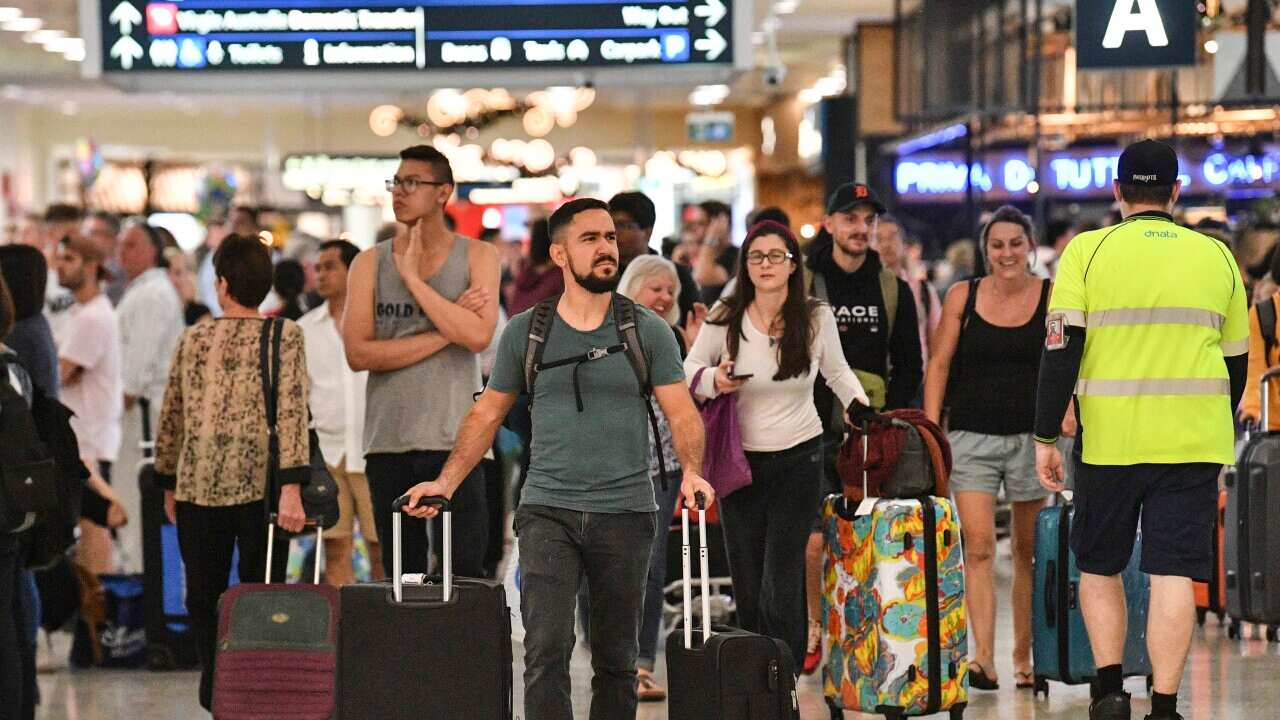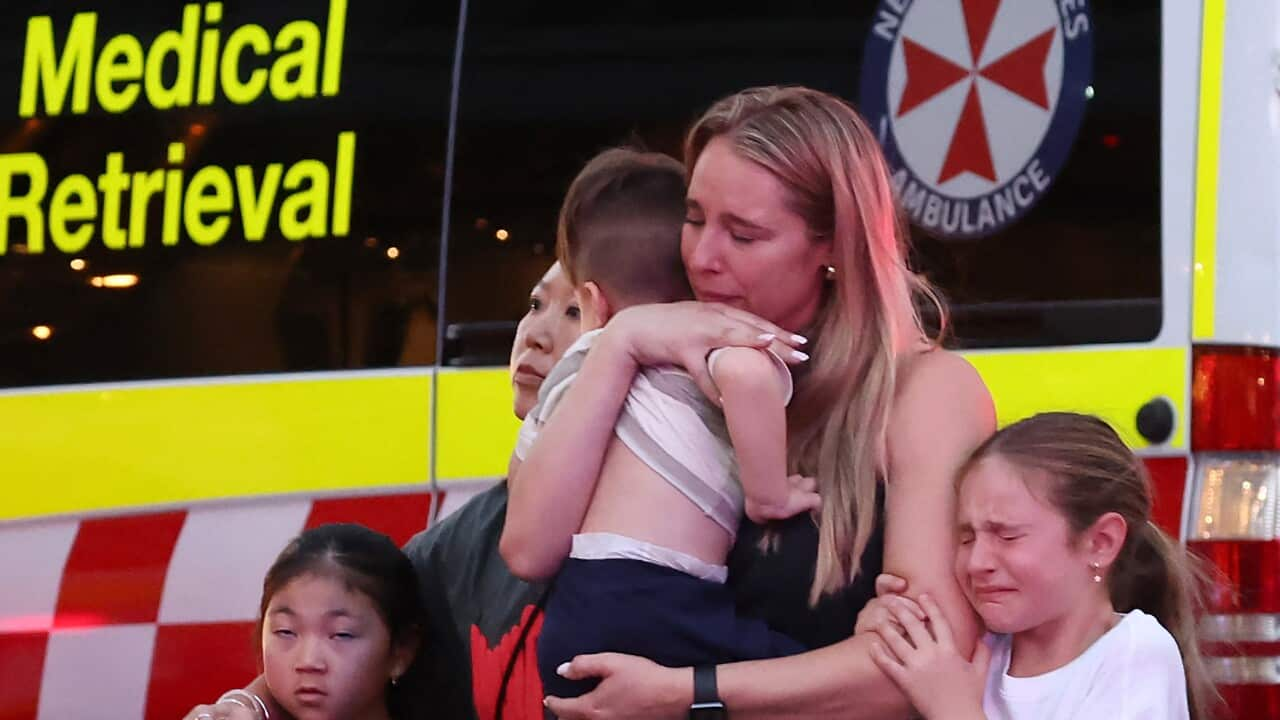(Transcript from World News Radio)
A smoking ceremony by Aboriginal elder Uncle Max Eulo for healing before a guard of honour escorted New South Wales Governor David Hurley into the sacred space.
In the inner-city Sydney suburb of Redfern, hundreds gathered to pay homage to Indigenous diggers both past and present.
Wreaths were laid before a march wound its way from Redfern Park to the Redern Community Centre.
For Aboriginal serviceman Jonathon Captain-Webb, the centenary commemoration is an opportunity to pay respects to Indigenous diggers who fought for Australia.
Speaking to NITV, he says he is proud to pay tribute to his great grandfather, who served in World War Two.
"I get a great pride and a sense of fulfilment that I'm wearing the same uniform that my great grandfather wore. And you know the army was a big reason why he migrated to Sydney to Refern after the war too."
Aboriginal and Torres Strait Islander Australians have fought for Australia in every war since Federation in 1901.
Pastor Ray Minniecon started the Coloured Diggers March nine years ago to fight for the recognition of the role of Indigenous diggers.
He says Indigenous veterans did not feel comfortable marching on Anzac Day for many years because of the way they were treated upon returning home.
"They didn't get that recognition when they came back, right through from the Boer War right through to the Vietnam war those guys just didn't get that recognition," he said.
"We know that they came home and they faced all the prejudices and came under the regimes in states and weren't allowed into the pubs, marching at the back of line.
"We know the stories as Aboriginal people. So to have this kind of recognition, to break down those stereotypes, those barriers is so significant and important - not just for them, but for us as their grandchildren."
Pastor Minniecon says the community is still uncovering the stories of Indigenous soldiers.
"And for the first time they're starting to recognise the four...they have identified four Aborignial trackers from Queensland, and two Aboriginal soldiers who fought in the Boer War, so that recognition is starting to come through even in South Africa.
"And we're hoping that you know, other countries will follow suit. Because our men fought in every world war. I know in some European countries they always acknowledge the Aboriginal digger over there. And it's taken us (in Australia) so many years to do the same thing."
Eighty-seven year-old Lenny Ogilvie is a member of the Stolen Generations and comes from a long family tradition of war veterans.
He says for him Anzac Day has a great personal significance.
"I joined the armed forces for a better life. I didn't join for King and Country. The King done nothing for me, or Aboriginal people. So it's only a job. I would do it again if I had to.
"I lost one of my best mates, the same night I was wounded. That was a sad time for me. These battles for me. My dad is a First World War veteran in France. We have got a bit of army background.
"My dad was was in the First World War. My brother was in the Second World War, my brother. And I was in the Korean War, and I was born on Anzac Day."
In Canberra, 31,000 people attended the Anzac Day national service at the Australian War Memorial, breaking last year's record crowd numbers by around 6,000 people.
More than 2,000 marched along Anzac Parade in front of the Australian War Memorial with representatives from Turkey, veteran groups, the armed forces, emergency services and the Red Cross.
But an attempt by 50 Aboriginal people to join marchers ended when police stopped the group.
Police in Canberra say the group of about 50 waved flags, beat sticks and chanted "shame".
Organiser Michael Anderson says the group had wanted to march unofficially to recognise Indigenous people killed when Europeans settled in Australia.
"We just want Australia to come to terms with the fact that there is a lot of horrible killings that took place in Australia. And unfortunately Australia, for some reason, refuses to accept the fact that Aborigines had a right to defend their territories, their freedoms for their right to exist in a country that was invaded by the British."
He says he is disappointed Indigenous Australians were excluded from participating in the official commemoration.
"To have separate marches for the coloured diggers, I think this is absoluetly incredibly wrong. There is a lot of things to be done. These fellas who are pushing reconciliation and recognition...and they're wondering why this should happen.
"They (authorities) better rethink this whole thing. You can't hide this, the history of Australia, you can't deny what happened in this country, to try and sanitise Australia's history."









